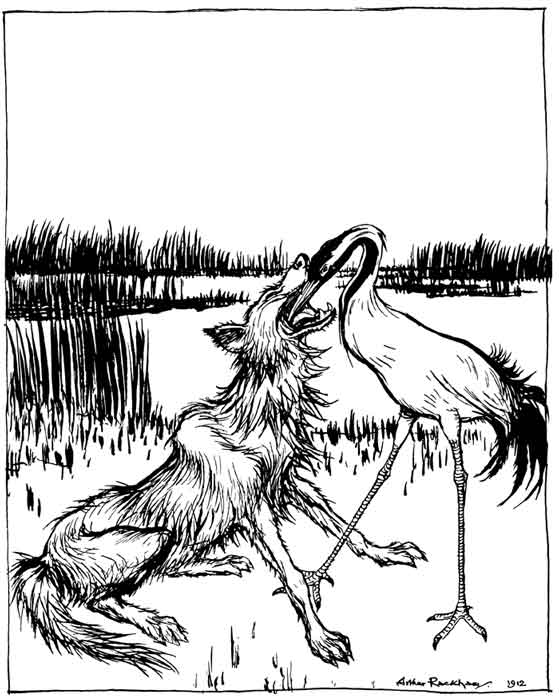1. ἐκ (prep.+gen.): out from, out of
2. ἀπό (prep.+gen.): from
3. ἄνευ (prep.+gen.): without
4. ῥᾴδιως (adverb): easily
5. καλῶς (adverb): well, rightly
Here are the proverbs and sayings:
Ἐκ λύκου στόματος.
Ἀπὸ ὄνων ἐφ᾽ ἵππους.
Ἄνευ πτερῶν ζητεῖς ἵπτασθαι.
Οὐδὲν κακὸν ῥᾴδιως ἀπόλλυται.
Καλῶς ποιεῖτε τοῖς μισοῦσιν ὑμᾶς.
Plus some commentary:

Ἐκ λύκου στόματος.
From the mouth of the wolf.
As Erasmus explains, this refers to an unexpectedly good outcome because someone in the mouth of the wolf does not expect to escape alive. Compare the English saying "from the jaws of death." Erasmus cites a similar passage from Horace, hoedus ereptus lupo, "a kid snatched from the wolf," and Erasmus also suggests a connection to the Aesopic fable about the crane (or heron) and the wolf, where the crane kindly but foolishly offers to get a bone out of the wolf's throat and is lucky to escape alive. There are many English words which feature the Greek ἐκ, such as ecstasy and eccentric.
Ἀπὸ ὄνων ἐφ᾽ ἵππους.
From donkeys to horses.
This refers to someone whose life changes for the better: donkeys pulled the carts of poor people, while the rich relied on horses instead. There are many English words which feature the Greek ἀπό, such as apostate and apostle.
Ἄνευ πτερῶν ζητεῖς ἵπτασθαι.
You are seeking to fly without wings.
The word πτερόν can mean "feather" or "wing," and you can see this root in the word "pterodactyl." D'Arcy Thompson suspects an allusion to the Aesopic fable about the turtle who went flying with the help of an eagle and plunged to its death.
Οὐδὲν κακὸν γὰρ ῥᾴδιως ἀπόλλυται.
No evil thing is easily destroyed.
The adverb ῥᾴδιως is formed from the adjective, ῥᾴδιος. This is a fragment of Greek comedy, so, not surprisingly, it is in iambic meter:
Οὐδὲν - κακὸν — γὰρ ῥᾴ-διως — ἀπόλ-λυται.
Καλῶς ποιεῖτε τοῖς μισοῦσιν ὑμᾶς.
Do good to those who hate you.
Literally, "do well" or "do rightly." Like the adverb ῥᾴδιως formed from the adjective ῥᾴδιος, the adverb καλῶς is formed from the adjective καλός. The words are from the Gospel of Luke, where Jesus says, Ἀγαπᾶτε τοὺς ἐχθροὺς ὑμῶν, καλῶς ποιεῖτε τοῖς μισοῦσιν ὑμᾶς, "Love your enemies, do good to those who hate you." Compare something similar in the Gospel of Matthew: Ἀγαπᾶτε τοὺς ἐχθροὺς ὑμῶν καὶ προσεύχεσθε ὑπὲρ τῶν διωκόντων ὑμᾶς, "Love your enemies and pray for those who persecute you."
Here is Arthur Rackham's illustration of Aesop's fable about the crane and the wolf.

Click here to subscribe/unsubscribe to the email list.
No comments:
Post a Comment